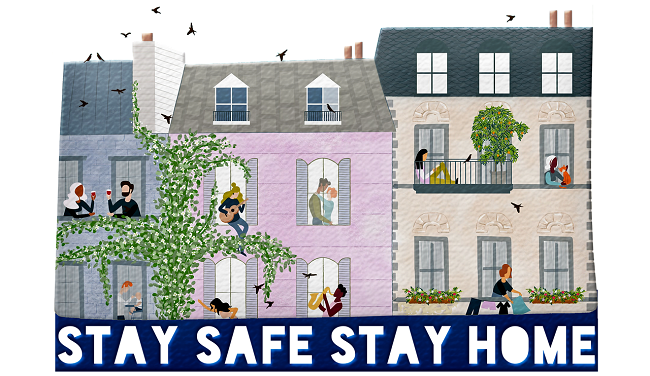
Image Credit
The Covid-19 pandemic has kept at least 2.6 billion people in some form of social isolation. But how does that affect people mentally? Well, according to experts, the Covid-19 lockdown has caused some of the most major psychological challenges the world has seen in recent years. And now there are deep fears that towards late 2020, an outbreak of burnouts could hit the globe as a result of lockdown.
Covid-19 mental challenges are real
Following the outbreak of the coronavirus pandemic, the world’s health facilities have been overwhelmed as a result of the upsurge in new infections. Nations scrambled to erect tents and temporary healthcare centers to treat infected patients. For example, in the United States, field hospitals were put up in Central Park when the COVID case counts and death toll shot to the roof. Unfortunately, what’s conspicuously missing in the world is the lack of psychological help centers for people grappling with the effects of social distancing protocols and quarantine. If the world is to come back stronger post-COVID-19, then nations shouldn’t be ignoring the mental health dangers posed by people being torn away from their loved ones as a result of unprecedented lockdown. There is a good reason why experts are tagging the Covid-19 pandemic as the “biggest psychological test” the world has seen in a long time. With a third of the global population living in isolation, that cannot go on without sparking psychological effects.
Effects of lockdown on mental health
Around February 2020, The Lancet reviewed 24 studies on the impact of lockdown on mental health. Insights from that study revealed what may be going on in the millions of households that have been hit hard by the pandemic. As expected, the results showed that quarantined people have a high likelihood of developing a broad spectrum of symptoms characteristic of psychological disorders. These include anxiety, sleeplessness, depression, stress, and anger, among other traumatic experiences.
But in particular, it was observed that low mood and temper irritability stood out among the psychological effects of Covid-19 lockdown. Moving to China, the origin of the virus, researchers also confirmed mental health challenges springing from the coronavirus pandemic.
In cases involving the quarantine of parents and their kids, the toll on mental health was much more pronounced.
Some studies found out that close to 28% of parents in quarantine showed trauma-like symptoms relating to mental health abnormalities. Meanwhile, healthcare workers can’t be left out. Nearly 10% of hospital workers experienced severe symptoms of depression. In the face of these difficulties, healthcare workers have a high tendency to engage in risky behaviors such as alcohol abuse and self-medication. In some cases, health practitioners avoid making contact with patients due to the fear of being infected.
The lack of personal protective equipment (PPE) also explains why doctors shirk their basic responsibilities of catering for the sick. The big question is — if doctors are closing their offices for fear of their lives, what happens to Covid-19 patients and those with non-communicable cases such as hearing losses? Well, that means Covid-19 patients may lose their lives needlessly, and the hearing-impaired won’t have access to an audiogram to diagnose their conditions.
How to overcome coronavirus-related mental health challenges
- Call for help
- Socialize with friends online
- Find a flexible job
This is not the best time to hide your poor mental health situation. Speak it out, and you will get help. For example, make a consultation with a psychologist and seek help before it’s too late. As trained mental health professionals, doctors and psychologists can offer you advice and even medications to improve your condition. Explain your feelings to them, and follow their recommendations to restore your positive mind.
The internet is serving the world perfectly in the course of the pandemic. Even though lockdown can tie you to your home, don’t allow it to cut off your communication with family and friends. Of course, in quarantine, you may not be able to attend parties with friends, but you can connect with them online through platforms like FaceTime, Facebook, and other platforms.
The Covid-19 crisis has affected people’s sources of income because the pandemic has dealt with businesses a big blow. To lessen your financial worries, you need to find a flexible job during the pandemic. Think about how you can work from home to make some money and meet your household needs.
The pandemic has affected the psychological state of people. But if you take the above measures, you can mitigate the negative impact of lockdown, and have your full mental health back.
